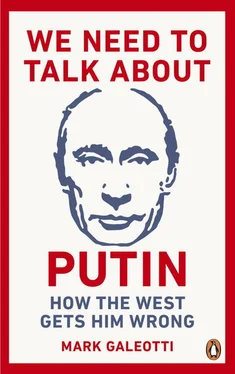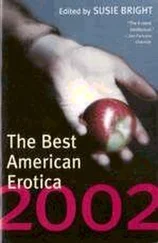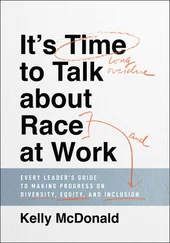It’s also a negative process. At the end of 2015, for example, when military intelligence chief General Igor Sergun died of a heart attack, it became clear that Putin wanted to appoint one of his ex-bodyguard favourites, Alexei Dyumin, as a replacement. The GRU wasn’t keen on the idea – as far as they were concerned, Dyumin was a heavy rather than a spymaster. Defence minister Shoigu and Chief of the General Staff Gerasimov concurred. But the problem was that even Shoigu can’t just say no to the boss, or at least not without taking quite a chance. So they played for time, while also leaking stories to the press that Dyumin wasn’t up to the job. Even the FSB, usually if anything a rival of the GRU, didn’t want to see a precedent established that a totally unqualified favourite could be parachuted into running a security service, so they also started muttering against the idea. Eventually, Sergun’s deputy Igor Korobov was appointed, and Dyumin got the consolation prize of the governorship of Tula instead. It is not that, had Putin flatly demanded it, Dyumin would not have been given the job, but there seems to have been a point at which he decided it was not worth the political cost of asserting his authority. Even tsars need to keep their boyars on side.
And the boyars aren’t happy. On the one hand, those closest to him – which also means those who are benefiting most greatly from his rule – are unlikely to want to see him go, because he is their krysha , their protection. One of the reasons why poor old Leonid Brezhnev lasted so long as Soviet leader, even staying in office after several heart attacks and strokes, was because he had people around him who feared the rise of the dangerous and puritanical Yuri Andropov. When Brezhnev finally succumbed to a heart attack in 1982, it was probably a release for him but a terror for them. Obviously one can only draw so many parallels between the sad, senile Brezhnev and the still-vigorous Putin, but it is likely that there are many who will do their utmost to stave off a succession, which would likely sooner or later mean the new president’s favourites would take their places.
Most within the Russian elite, however, are not in this charmed circle. As Putin increasingly focuses on building his historical legacy and his own geopolitical agenda, he seems to be getting out of step with many of them. The majority, after all, are pragmatic kleptocrats; they are happy to proclaim their devoted commitment to Mother Russia, but they want to be able to keep robbing her blind at the same time, and sending their money, and their families, and their mistresses to safety and comfort in the West. The more sanctions bite, as Russian money becomes toxic and visas become harder to get, the less they can truly enjoy the fruits of their embezzlement. They are happy to see Crimea back in the fold, but they would prefer to holiday in the Cap d’Antibes. Times are getting harder, and so long as Putin continues to make sure his closest friends do well, that inevitably comes at the expense of everyone else. That said, they cannot risk challenging him, because one thing he does understand – and will undoubtedly be ruthlessly willing to keep in his grip – is power. His true loyalists control the security forces, which means they can punish whoever steps out of line. So instead the boyars are waiting. They know the tsar can’t, or won’t, be there for ever, and then they will have a chance to salvage something from the situation.
What do we in the West want out of this situation? It is hard to see any substantive improvement in relations with Russia, so long as Putin is in the Kremlin. Any attempt actively to topple him would be tremendously dangerous – we risk appearing to vindicate his claims about Western aggression and, if past experience is anything to go by, regime change never seems to work well for us. The apparent American enthusiasm for President Medvedev, and their willingness to treat him as if he were the real ruler and not a proxy, was meant to encourage a shift to a slightly more liberal politics, but actually contributed to Putin’s decision that he needed to return to the presidency. Any more active and aggressive meddling would likely trigger an active and aggressive backlash and empower the ultranationalists whom Putin has actually contained. He is neither a fanatic nor a lunatic, and a stable Russia is less dangerous than one in chaos. Containing the harm Russia can do to us and minimising his opportunities for mischief is probably the best we can hope for, however depressing and unambitious that may sound.
But what we can do, to restate an earlier point, is remember that ordinary Russians should not all be considered Putin’s ardent followers, but rather his victims, even if they may not think of themselves as such. We need to make sure they realise that we are not their enemy, and not least for the post-Putin future. We need to appreciate the extent to which Russia is driven by emotions, by a sense of threat and abandonment and disrespect that might be hard fully to justify in objective terms, but felt no less strongly for that. Personally, I am still an optimist and believe that Russia is slowly moving towards Europe and European values, as it works its way through the traumas resulting from the end of empire. But this is likely to happen over a matter of generations rather than years.
So we need to talk about Putin also because much of this will still hold true, even when he’s gone. We may face a Putinist Russia even without the man himself. It is not just that he has nurtured a political generation of mini-Putins, but also that one of the fundamental reasons for his continued standing is that he embodies and channels feelings shared by a majority of Russians. It is worth mentioning that even critics such as Alexei Navalny support the annexation of Crimea, and the newly active Communists who stage anti-government marches do so not because they think he is too anti-Western, but because they think his confrontational geopolitics mask a supine acceptance of exploitative neo-liberal market economics. Just as not everyone who supports Putin is our enemy, not everyone who opposes him is necessarily our friend.
Perhaps I should end as I began, with the words of that well-fed Presidential Administration staffer, spoken between bites of expensive boar cutlets at the White Rabbit restaurant. He recalled a story Putin himself would tell about his childhood in ruined Leningrad, when he and his friends would hunt the rats that plagued their block of flats. One day, having come upon an especially large one, he chased it up the stairs and down the hall and into a corner. What do cornered rats do? It turned and leapt at him, and a terrified young Putin fled.
‘Russia thinks it’s Putin, out hunting rats, but we’re actually the rat. Everyone fears us, but we’re just doing what comes naturally. Corner us, though, and we’ll turn.’ He paused, and then added, ‘Actually, that’s Putin – the big rat, the one willing to turn. But there’s always another one, somewhere in the shadows.’
So maybe, even as we look to a future Russia after Putin, that gives us another reason to talk about Putin. Because there could be another Putin, an even bigger one, waiting in the stairwell.
Professor Mark Galeotti is one of the foremost Russia-watchers today, who travels there regularly to teach, lecture, talk to his contacts, and generally watch the unfolding story of the Putin era. Based in London, he is Senior Non-Resident Fellow at the Institute of International Relations Prague, having previously headed its Centre for European Security, and was before then Professor of Global Affairs at NYU. A prolific author on Russia and security affairs, he frequently acts as consultant to various government, commercial and law-enforcement agencies.
Читать дальше












